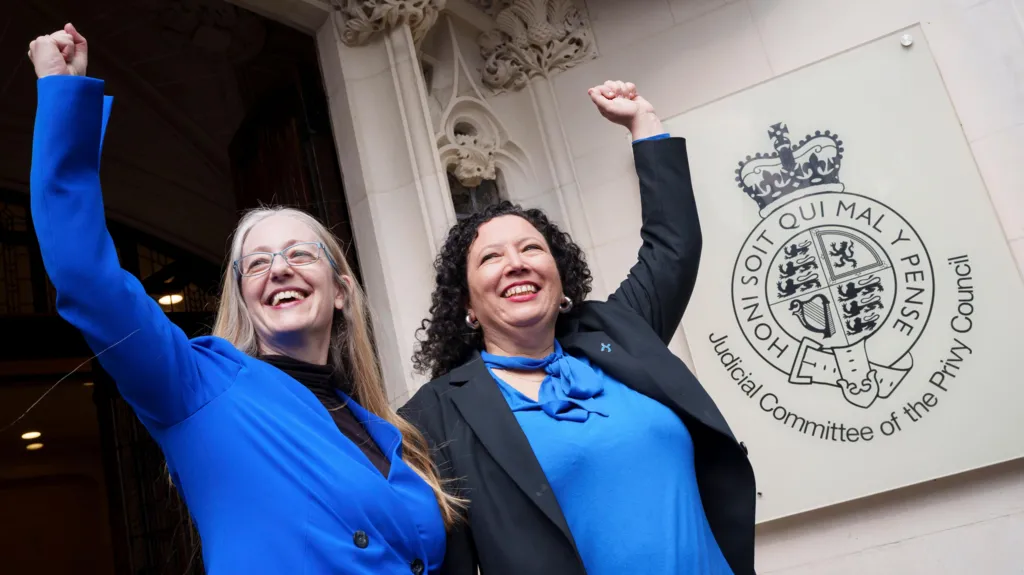After years of argument and dispute about the meaning of gender, the watchword of Wednesday's Supreme Court ruling has to be clarity.
Equality law has been made clear with the unambiguous statement that the term "woman" refers to a biological woman and does not include biological men who identify as women.
It is a "victory for common sense", according to the chairwoman of the Equality and Human Rights Commission (EHRC).
Baroness Falkner added: "If a male is allowed to use a women-only service, it isn't any longer a single-sex space."
This is a world away from the carefully chosen language which has been used to navigate gender issues for much of the last decade.
The Equality Act, which protects people who have been through gender reassignment from harassment, discrimination and sex discrimination, is enforced by the EHRC.
It is now updating its statutory code of conduct to take account of the judgment, saying that, with this new framework, it should be in a better position to enforce the law where it finds breaches.
It was directly involved in the Supreme Court case because it said inconsistencies over whether the term sex included or excluded transgender people with gender recognition certificates (GRC) was making equality law unworkable.
The ruling removes any ambiguity. Now, a GRC will not change a person's legal sex for the purposes of the Equality Act.
What does the ruling mean in practice?
Public bodies – from the NHS and prisons to sports clubs and businesses – will already be reviewing their policies.
Women's toilets, changing rooms and other single sex spaces will be for biological women only.
In theory, that means a transgender man or woman should use facilities that correspond to their biological sex.
However, this is likely to present other difficulties as the person will be presenting as their gender identity to the outside world.
Baroness Falkner argues that transgender people should use "their power of advocacy" to persuade organisations to provide third spaces such as unisex toilets.
Cases such as that of the nurse, Sandie Peggie, who was suspended after refusing to share a changing room with a transgender doctor, are likely to be reviewed.
NHS Fife, the health board involved in the case, told the BBC that it noted the clarity provided by the ruling and would "carefully consider the judgment".
